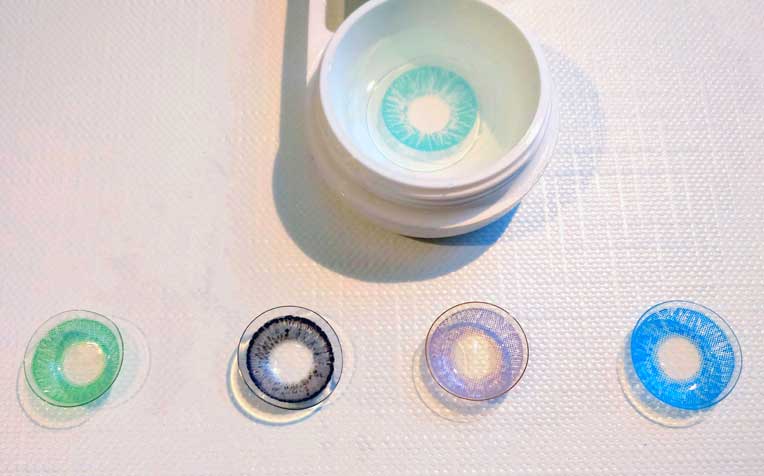
Contact lenses is best purchased from registered practitioners.
Whether it is contact lenses or cosmetic lenses, there is increased risk of side-effects if not enough care is taken in their use. These include dry eyes, corneal infections and allergic conjunctivitis. “Contact lenses should always be worn with care. They are medical devices not cosmetic products. So, if wearers can’t comply with instructions for taking care of their lenses, they shouldn’t continue to wear them,” said Clinical Associate Prof Lim Li, Senior Consultant, Corneal & External Eye Disease Department, Singapore National Eye Centre (SNEC), a member of the SingHealth group.
Do's
Wash your hands before handling your contact lenses.
Clean and disinfect contact lenses properly after each use.
Clean and air-dry the contact lens case every day. Follow the lens care instructions from your eye care professional.
Arrange for periodic eye examinations (at least once every six months to a year) by an eye care professional.
Don’ts
Store cases and solution in the bathroom.
Reuse your contact lens solution.
Store contact lenses in non-sterile fluids such as distilled water or tap water.
Wear contact lenses past their expiration date.
Wear damaged contact lenses.
Wear lenses overnight (even for extended wear lenses) as this increases the risk of corneal infections. Wear contact lenses when swimming as this can increase the risk of lens contamination by harmful microorganisms.
Wear your lenses if your eyes turn red, there is discharge or your vision goes blurry. Consult your eye care practitioner or doctor to find out the cause.
“Wearing cosmetic lenses is the same as using clear lenses. Like clear lenses, they come in several sizes, so it’s advisable to see a registered contact lens practitioner to get your eyes examined to ensure a proper fit", added Clin Assoc Prof Lim Li.
When purchasing contact lenses...
Get your contact lenses and eye checks regularly with a registered practitioner.
Many go online to get supplies because they find it cheaper, but lenses bought off the Internet may not fit the wearer’s eyes, which can lead to contact lens-related complications.
“You need to have regular check-ups with your practitioner every six months to a year, even if you don’t experience problems with the lenses. This is because wearing contact lenses can create problems that have no symptoms. For example, chronic corneal hypoxia (lack of oxygenation) may initially have no symptoms," Clin Assoc Prof Lim Li advised.
Ref. L20
Check out other articles on contact lenses:
More Tips on How to Clean and Care for Your Contact Lens
Dangers of Contact Lens Misuse
Contributed by


















 Get it on Google Play
Get it on Google Play